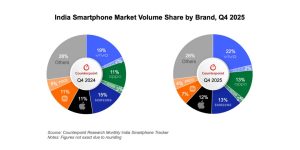As the electric vehicle market continues to experience rapid growth, manufacturers worldwide are vying for a share of this expanding industry. While Tesla may seem like the obvious frontrunner, it is actually a Chinese company called BYD that has emerged as the global sales leader in the EV sector.
BYD’s unexpected success can be attributed to its long-standing commitment to electric vehicles, coupled with an impressive lineup of affordable and attractive products. In fact, BYD’s exceptional sales performance prompted Ford CEO Jim Farley to acknowledge Chinese automakers like BYD as their “greatest EV rivals.” Here’s why China is shaping the future of the EV market.
China’s Strategic Investments in Electric Vehicles
China’s rise to prominence in the electric vehicle market can be traced back to the country’s strategic investments and government support. Recognizing the potential of EVs to reduce emissions and dependence on fossil fuels, the Chinese government has implemented policies and incentives to encourage the development and adoption of electric vehicles. This proactive approach has allowed Chinese automakers to gain a competitive edge in the global market.
BYD’s Strong Lineup and Affordable Offerings
BYD’s success is not solely due to favorable government policies. The company has invested heavily in research and development, allowing it to build a strong lineup of electric vehicles that cater to a wide range of consumer needs. From compact city cars to SUVs and commercial vehicles, BYD offers a comprehensive portfolio that appeals to various customer segments. Moreover, BYD’s commitment to affordability has been a key factor in its popularity. By offering electric vehicles at competitive prices, BYD has made EV ownership accessible to a larger consumer base.
Chinese Battery Technology Advancements
One crucial aspect where Chinese automakers have gained an advantage is in battery technology. Chinese companies, including BYD, have made significant strides in developing advanced battery systems for electric vehicles. These batteries are not only more cost-effective but also offer improved energy density and longer ranges. By leveraging their expertise in battery manufacturing, Chinese automakers have been able to produce EVs that outperform many of their global counterparts.
The Global Impact and Ford’s Response
Ford CEO Jim Farley’s recognition of Chinese automakers as Ford’s “greatest EV rivals” underscores the global impact of China’s dominance in the electric vehicle market. Ford, like other major automakers, realizes the importance of adapting to the evolving landscape to remain competitive. In response, Ford has announced ambitious plans to invest heavily in electric vehicles and develop its own cutting-edge technologies.
Ford’s Advantages and Challenges
While Chinese automakers pose a formidable challenge, Ford possesses certain advantages that could help it compete. Ford’s long-established brand name and loyal customer base provide a solid foundation to build upon in the EV market. Additionally, Ford’s global reach and established dealership networks in markets worldwide give it a significant advantage in expanding its EV offerings.
However, Ford also faces significant challenges. Chinese automakers have established a strong foothold in their domestic market, and their expanding presence in international markets poses a threat to established players like Ford. To effectively compete, Ford must continue to invest in research and development, collaborate with technology partners, and focus on delivering compelling electric vehicles that meet consumer demands.
The Future of the EV Market
As the electric vehicle market continues to evolve, China’s influence is set to grow even stronger. Chinese automakers‘ investments in technology, battery advancements, and affordable offerings position them as formidable contenders in the global EV market. The competition between traditional automakers and their Chinese counterparts will drive innovation, leading to more affordable, efficient, and technologically advanced electric vehicles for consumers worldwide. The future of the EV market undoubtedly belongs to China, but how other players adapt and navigate this changing landscape will determine their success in the years to come.













































































































































































